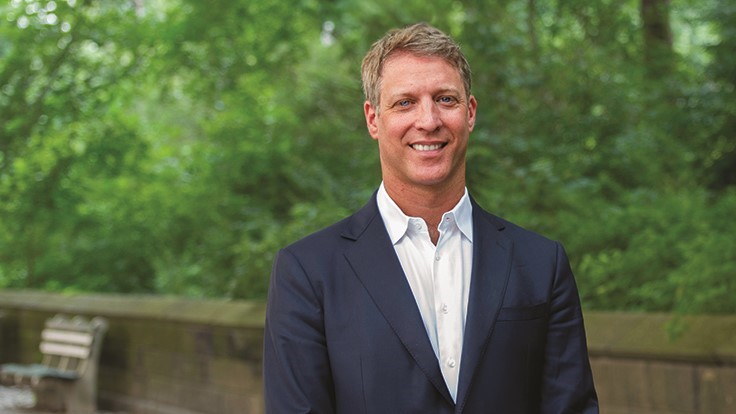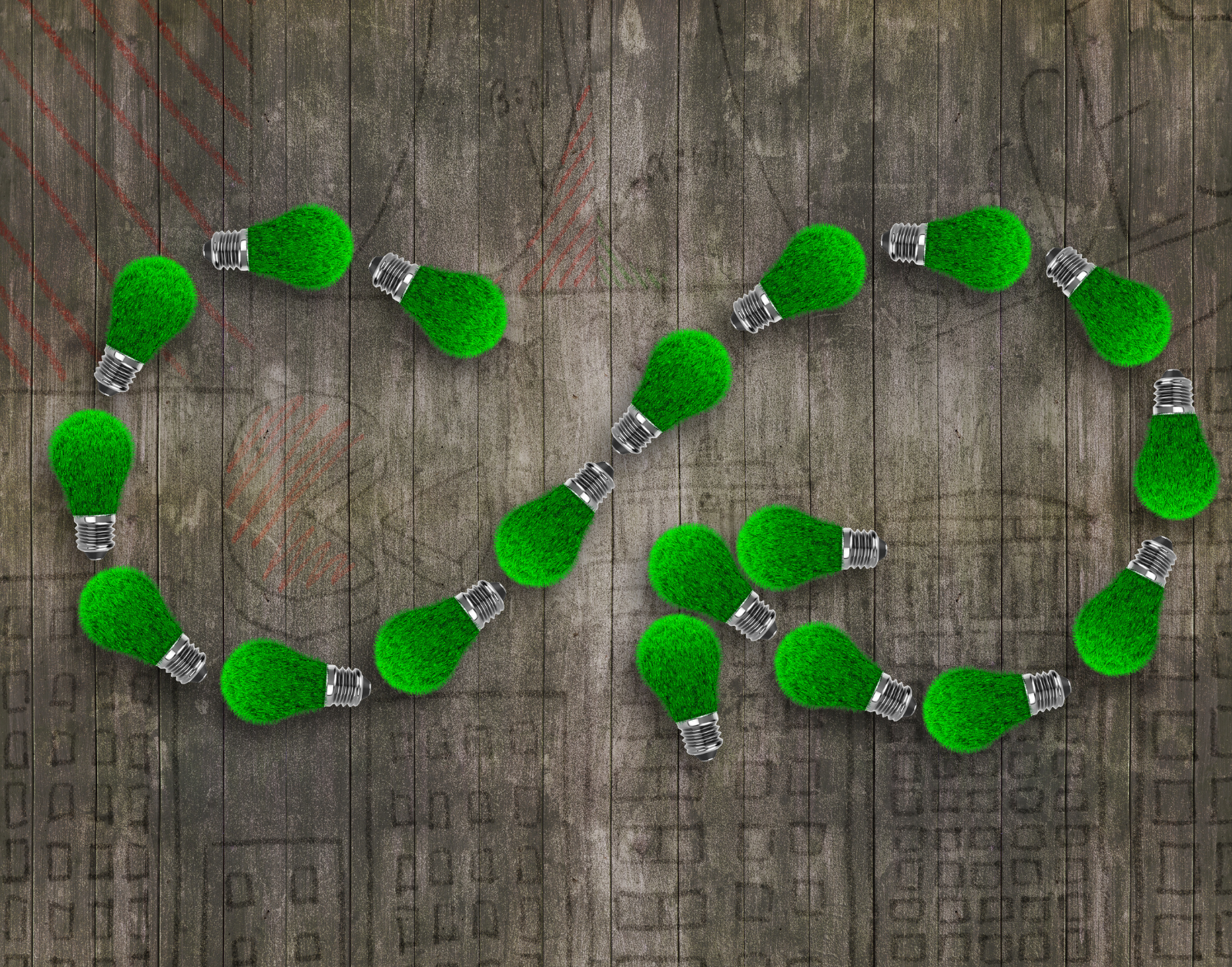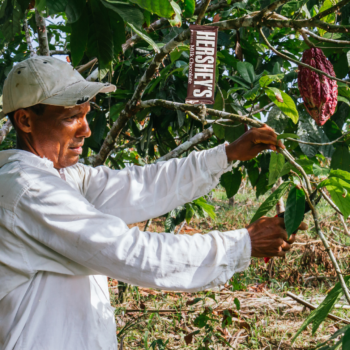|
|
This week, we sat down with Closed Loop Partners CEO Ron Gonen. Closed Loop Partners is a New York based investment firm comprised of venture capital, growth equity, private equity and project finance as well as an innovation center focused on building the circular economy.

During our conversation, we covered pressing topics like social entrepreneurship, sustainable investing, and climate optimism.
Dig deeper ➝ 3 min
Q: As a Venture For America fellow, I am always fascinated by founder stories. What inspired you to ditch Deloitte and launch a recycling company back in the early 2000s?
- I realized in my late 20s that my passion was in social policy and the environment, and wanted to merge that with the business and technology skills I acquired at Deloitte.
- During business school at Columbia University, a friend came to me with an idea to use a points program to reward people for recycling, and asked me to build out the business model and technology. This became the foundation for RecycleBank, my first company.
- It’s important to remember that incentives work––the cornerstone is explaining to people why you’re asking them to do what you’re asking them to do, and making sure that they see the value they’re creating for their community and themselves. That’s a powerful incentive.
Q: ESG funds are hot right now. But there weren’t always Larry Finks in the room to talk up climate risk, especially when Closed Loop Partners formed in 2014. How does your “circular economy” model fit into the ESG mold and what inspired this approach to sustainable investing?
- Investors see sustainability as the top investment theme of the next decade, with Environmental, Social & Governance (ESG) investing as one of the fastest growing investment strategies. While the circular economy remains a subset of ESG investing, a number of market forces are driving increasing inflows of capital into the circular economy, including growing consumer demand, increasing demand for recycled materials from companies, and profitability.
- The circular economy advances significant environmental and social benefits that many ESG-focused investors are looking for.
- Across all of Closed Loop Partners investments, we measure greenhouse gas emissions reduced and tons of waste diverted from landfill.
- The circular economy is explicitly tied to addressing the climate crisis. 45% of greenhouse gas emissions come from how we produce goods like cars, clothes, food and other products we use everyday. Transitioning from a linear, take-make-waste mode of production to a circular one in which nothing goes to waste can have a significant impact on reducing these emissions––a key goal for many ESG investors.
Q: Going off that, how does Closed Loop differentiate itself from other investment firms in the space?
- Closed Loop Partners is focused specifically on accelerating the transition to a circular economy, and advancing a range of solutions that enable this transition.
- We operate with a hybrid structure––with an investment firm and innovation center focused on building the circular economy––knowing that multiple strategies need to be at play to successfully accelerate the circular economy.
- Our investment firm invests in companies across multiple asset classes––venture capital, project-based finance, growth equity and private equity––allowing the firm to invest at every point in a company’s growth trajectory; as a result, we are able to identify bottlenecks and apply the right form of capital toward the solution that addresses that bottleneck.
- To date, we have invested and helped build over 50 businesses and projects across our platform to date, diverting 2.3M tons of waste from landfill and avoiding 5.3M tons of GHG emissions.
- Our investors include some of the world’s largest consumer, technology and retail companies, institutional investors and global family offices.
- Our innovation center, the Center for the Circular Economy, works alongside the investment firm, advancing research, analysis and collaboration to accelerate the transition to a circular economy in which materials are shared, re-used and continuously cycled.
- To date, the Center has launched two unprecedented industry Consortia––the NextGen Consortium and Consortium to Reinvent the Retail Bag––bringing together many of the world’s largest foodservice and retail companies to work together to address the toughest material challenges, including single-use foodservice packaging and the single-use plastic retail bag.
- Overall, Closed Loop Partners advances solutions across four key sectors critical to accelerating the circular economy: plastics & packaging, food & agriculture, fashion, and technology.
Q: Closed Loop prides itself on cross-collaboration within its portfolio. What do you think is the biggest obstacle for collaboration within the circular economy? In other words, why don’t more circular companies collaborate?
- Historically, many companies operated on their own to advance sustainability goals.
- Collaboration among competitors and peers requires a strong platform that can bring them together around shared goals––one that can facilitate productive communication and partnership.
- This is not how business as usual has operated to date, but increasingly companies are recognizing that the mounting global waste is a systemic challenge and requires multiple stakeholders to join forces.
- From the outset, Closed Loop Partners has specialized in getting unlikely partners to collaborate; Closed Loop Partners offers a platform for collaboration, inviting a range of stakeholders to work together through its funds and its Center for the Circular Economy.
Q: If there was one thing you could tell a founder before starting a ‘sustainable’ for-profit company, what would it be?
- Sustainability does not only offer significant environmental impact; it also offers significant economic impact, further strengthening a for-profit business model.
- The idea of ‘sustainability’ needs to be baked into the core of the company, grounding its mission and business model, rather than being leveraged as an add-on to the business.
- It is critical to be values- and mission-aligned with your investors, and customers.
- No matter the size of company, every business, organization and individual working to build a circular economy operates within a much larger system. Change is created through collaboration with multiple stakeholders in the value chain––from multinational corporations, to cities and municipalities and governments, to local stores. It is important that businesses embrace a collaborative spirit to advance their shared goals
Q: Where do you see the ESG/circular economy heading through the next decade? Are there any noticeable trends in climate & sustainability tech?
- The ESG space is one of those things that’s pushing the industry to adapt, but I think that the ESG space is still really early and figuring out its own expression and what it wants. It’s going to require some regulation to make sure that it’s authentic in making sure it applies the capital it’s raised to actually having an impact.
- We view the transition to a circular economy as the biggest transition of capital from one system to another, since the Industrial Revolution. We are talking about hundreds of billions of dollars that will transition from production using virgin and raw material to production systems that are using recycled material or product design software that eliminates waste.
Q: Given you are spending your days on Earth running a sustainable investment firm, I’m guessing you’re somewhat bullish on the future. Why aren’t we “doomed”? What is your current “state of the circular economy”?
- Many innovators and global consumer packaged goods (CPG) companies are already transitioning to a circular system. “Smart” refillable packaging, robotics and AI that optimize recycling and reuse, nutrient rich fabrics and technologies that turn food waste into gas for cooking are just a few examples of the innovations in existence today that are poised to scale.
- Multiple companies have already demonstrated the economic value created by aligning the interests of shareholders, employees, customers, and our environment: Patagonia, in the fashion industry; Seventh Generation in the cleaning products industry; Ben & Jerry’s in the food industry; SodaStream in the beverage industry; Cascade Engineering in the manufacturing industry; and Phillips in the equipment industry are just a few examples.
Did you enjoy this interview with Closed Loop Partners CEO Ron Gonen? Check out my other interviews with sustainable innovators like TemperPack’s Brian Powers, or Fill It Forward’s Matt Wittek.
You can learn more about Closed Loop Partners beyond their CEO here.













No Comments